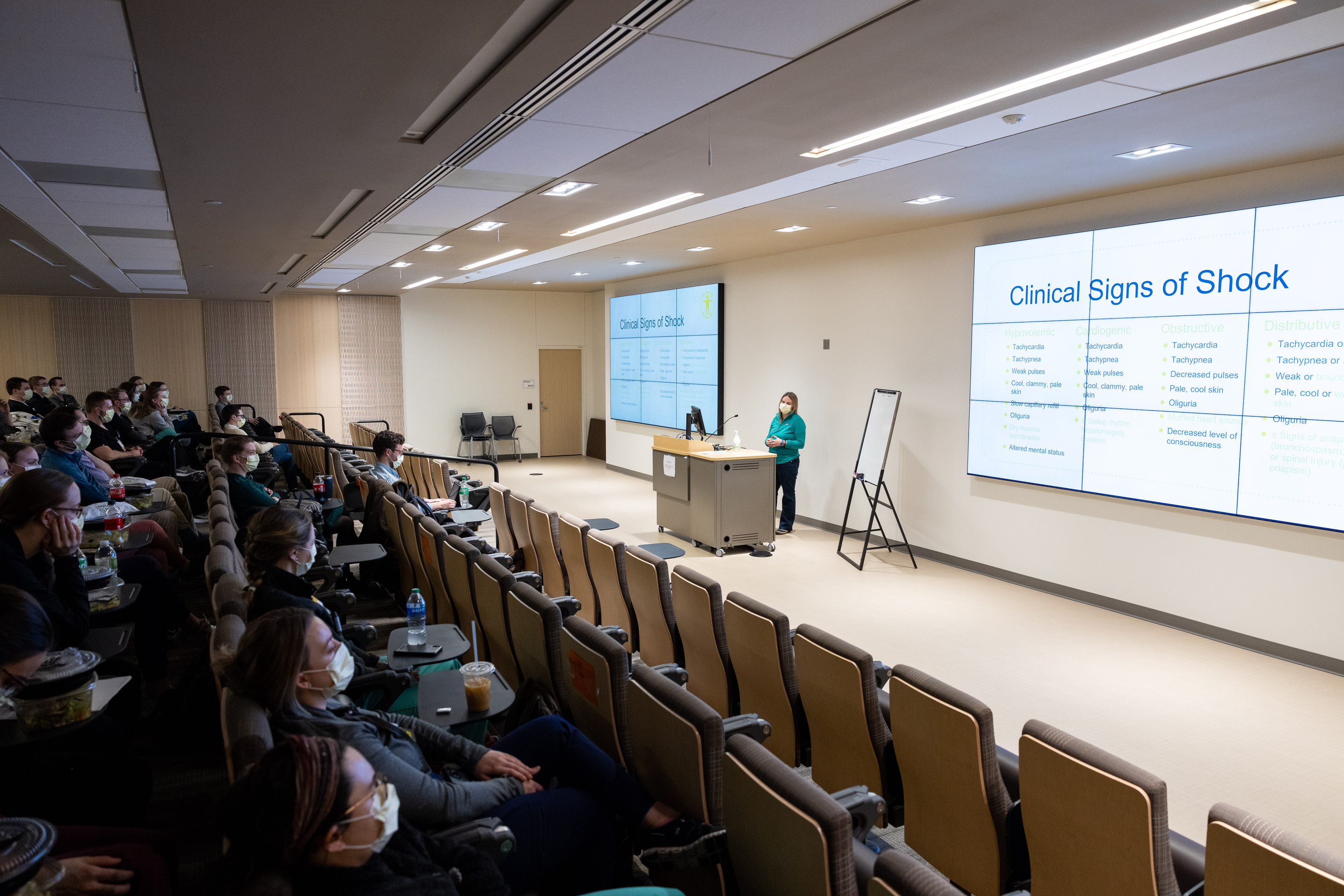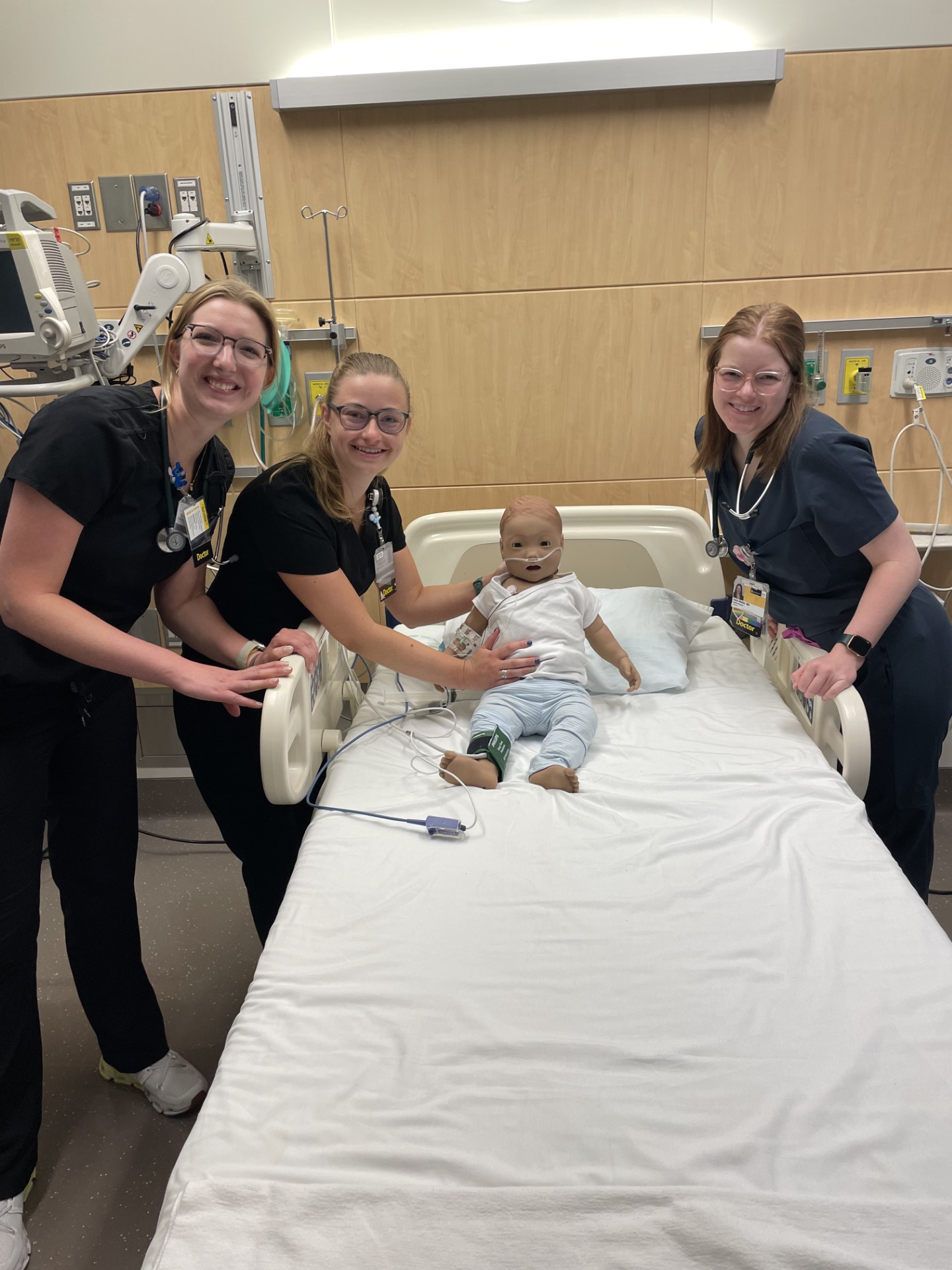Main navigation
Pediatric Residency Curriculum
| Name | Description |
|---|---|
| Academic Days | Held monthly. Mornings feature interactive, game-based board review sessions. Residents on outpatient and EM rotations attend the morning session. Afternoons welcome residents on inpatient rotations. The day incorporates a blend of lectures, small-group, and hands-on activities. |
| Rotation-Specific Curriculum | Tailored teaching is provided during core rotations, including General Pediatrics Clinic, PICU, NICU, and Hematology/Oncology. Continuity Clinic features a game-based learning model (e.g., Bingo!) to reinforce key concepts. |
| Noon Conferences | Occur twice weekly and are organized around themed weeks aligned with ABP board content. Each week includes a lecture from a content expert, followed by a resident-led discussion session facilitated by the chief residents. |
| Protected Resident Learning (PRL) | Offered twice weekly to residents on the inpatient wards. Sessions are designed for “just-in-time” teaching, covering high-yield topics commonly encountered on pediatric floors, delivered by hospitalist and subspecialty staff and fellows. |

Resident-Led Lectures
| Name | Description |
|---|---|
| Senior Case Conference | Third year residents present a formal patient case of their choosing. Residents will select a faculty mentor to assist with the presentation, with additional support from a Dr. Colburn, our Associate Program Director of Development and Advocacy. The Case Conference is designed to examine, via case presentations, topics in Pediatric medicine based on current literature and evidence-based medicine. |
| Journal Club | Second year residents evaluate and present an evidenced-based, peer reviewed article of their choosing, with assistance from an Dr. Lyndsay Harshman, our Associate Program Director of Research. Through this series, residents learn how to formulate a clinical question, learn techniques on searching the medical literature efficiently, learn how to efficiently read a journal article and critically appraise a variety of journal articles. The objective is for residents to apply above techniques to everyday practice and to continue lifelong learning. |
| Chair Rounds | Case conference series facilitated by Chief Residents once per block. One of the inpatient teams prepares and presents an interesting patient case with participation of medical students, interns, senior residents, fellows, and faculty. |
| Resident Report | Weekly conference facilitated by Chief Residents where residents present brief patient cases. Each resident is expected to present at least two cases per year. |
Additional Educational Opportunities
| Name | Description |
|---|---|
| Mock Code | Pediatric residents participate in the hospital-wide, multidisciplinary mock code curriculum where high-yield scenarios play out and involve the use of a high-fidelity mannequin. Each patient scenario is followed by an enriched debriefing experience. |
| Grand Rounds | Held every Friday, these state-of-the-art clinical science presentations are given by faculty and guest speakers. |
| Frontiers in Pediatric Research | State-of-the-art research science presentations by faculty and guest speakers. |
| Pediatric Pain and Palliative Care Education series | Multidisciplinary conference discussing topics such as palliative care, psychosocial issues relating to dealing with chronic illness, receiving bad news, and death, as well as pain management and care at the end of life. |
| Departmental M&M | Faculty led morbidity and mortality review on specific case to provide additional learning, quality improvement, etc. |
